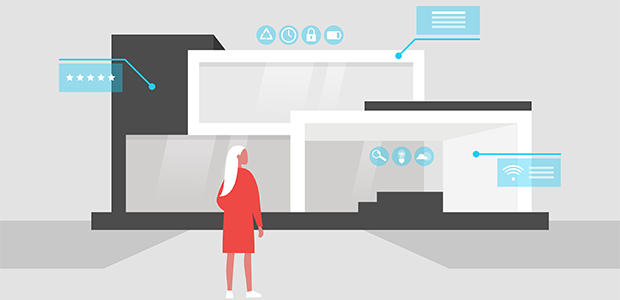
Empowering Gen Z: How HR can lead the charge in AI integration
AI has become an integral tool across various functions, from automating routine tasks to providing insights that drive strategic decisions. However, for Gen Z, the first truly digital-native generation, AI represents both a significant opportunity and a unique challenge.
On one hand, Gen Z is highly adept at using digital tools, making them well-suited to leverage AI in ways that enhance productivity and creativity. On the other hand, many feel conflicted about their reliance on AI, with a recent EduBirdie study revealing that 36% of Gen Z employees experience guilt when using AI tools like ChatGPT at work.
It is critical to foster an organisational culture that views AI as a tool for improvement rather than a crutch. This includes demystifying AI, emphasising its advantages, and reassuring staff that using AI complements their present skills. By doing so, companies can ensure that their workforce feels confident and supported in their use of AI, ultimately leading to greater productivity and job satisfaction.
HR has a core role to play in the training, upskilling and implementation of AI throughout the business – and HR and hiring teams must lead the charge when adopting these solutions.
Normalising AI use through HR-led training
The introduction of new technology is often seen as sitting in the domain of the IT team. However, it is, in fact, HR that may be best positioned to take proactive steps in this area. HR can play a critical role in addressing this conflict by developing clear guidelines on the appropriate use of AI in the workplace.
By providing comprehensive training that covers not only the technical aspects of AI tools but also the ethical considerations, HR can help employees understand when and how to use AI effectively. This training should emphasise that AI is a tool designed to further human capabilities, not replace them, thereby reducing any anxiety or guilt associated with its use.
Beyond training, HR can foster a workplace culture that openly embraces AI. This involves encouraging discussions about AI use, sharing success stories, and integrating AI into daily workflows in a way that feels natural and beneficial. By normalising AI use in everyday work, HR can help Gen Z and other employees feel more comfortable and confident in leveraging these tools.
Hiring for digital proficiency
As AI becomes more embedded in daily operations, hiring managers are increasingly prioritising candidates who are skilled in data and digital tools. A recent study by HireVue highlighted that IT and digital skills are expected to become increasingly in demand over the next five years from graduates and school leavers, showcasing a shift to appreciation of digital tools.
Proficiency in AI and automation tools enables HR professionals to enhance functions such as recruitment, background checks, performance tracking, and employee engagement, ensuring the department utilises digital tools to take care of nitty-gritty admin tasks so they can focus on projects that matter most.
However, integrating AI should enhance rather than replace human elements within HR. While AI can automate routine tasks and provide insights, it’s crucial that human judgement remains central, especially in areas like employee relations and organisational culture. For instance, AI can assist with initial candidate screenings, but personal interactions and decision-making should still rely on human expertise. Balancing technology with human touch ensures that AI supports rather than overshadows the core mission of HR – to foster and develop people. This approach maintains a people-centric focus, integrating technology in a way that enhances overall employee experience while preserving the personal element of HR.
Continuous learning in the AI era
With AI, continuous learning is not just a luxury but a necessity. AI technology is constantly advancing, and so too must the skills of employees who interact with these tools. HR departments can help establish ongoing development programs that are flexible and responsive to technological changes. This means regularly updating training materials to reflect the latest AI advancements, ensuring employees remain proficient and confident in their use of these tools. HR can foster an environment of continuous learning to help employees adapt to new technologies and integrate them seamlessly into their workflows.
Not only this, but HR and hiring teams themselves shouldn't shy away from new AI learnings & automation tools but instead lean into them. By embracing the latest technologies, they can continue making more efficient and streamlined processes in the workplace. With Gen Z being highly adept at using digital tools, implementing and utilising robust AI tools through the business creates a powerful opportunity to empower the next generation of HR professionals
Another important component of the successful use of AI is for HR to actively seek and incorporate feedback from Gen Z and other employees regarding their experiences with AI tools. This feedback can provide valuable insights into how AI training and usage guidelines can be refined to better meet the needs of the workforce. By creating a culture that values and acts on feedback, HR can ensure that AI integration remains effective and relevant, addressing any concerns or challenges that arise.
HR plays a critical role in guiding Gen Z and other employees through the AI landscape by implementing robust training programs and fostering a feedback-driven approach to continuous improvement. HR leaders are urged to proactively invest in AI training and support, preparing their organisations to not only keep pace with technological advancements but to thrive in a future increasingly shaped by AI.

